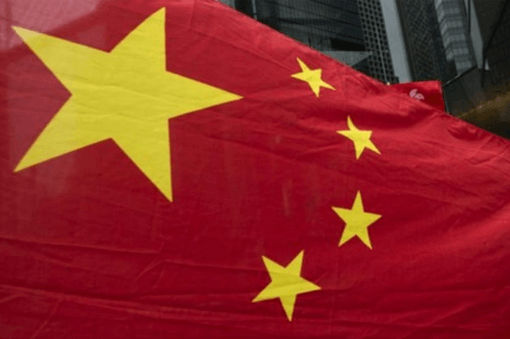
Photo by tonynetone | CC BY 2.0
Today, the inevitable arrived. With Trump’s declaration of trade war on China – which POTUS seems to relish – Washington has initiated the first head-on confrontation between itself and Beijing.
For more than two decades, the US Empire had watched with growing alarm as China steadily and persistently closed the gap between them in terms of power and global influence. Many around the world hoped that the West’s elites would somehow find a way to accommodate, coexist peacefully with the Chinese, who were painfully hauling themselves out of a 200-year nadir in their long history.
Beijing showed its good intentions by adopting economy- and trade-centered policies, guided by an ethos of non-belligerence, cooperation and mutual benefit. But the Empire’s rulers realized recently that China was not following their script by evolving into a liberal democracy practicing neoliberal capitalism. In the zero-sum, Manichean mindset of the West, that was the final straw. Washington’s fear & loathing reached boiling point.
Trump, in his typically brash, schoolyard bully style, decided he would be the one to pull the trigger. The visceral venom he harbored towards the Chinese – à la the “China, China, China, China, China” ejaculations of his presidential campaign – came pouring out. When his initial round of tariffs on steel and aluminum backfired by seeming to hit US allies harder than China, Trump quickly followed with his latest assault: $60 billion in unilateral, punitive levies that are illegal under WTO rules, targeting China exclusively. In a bid to dampen tensions, Beijing announced retaliatory tariffs of only $3 billion.
Equally ominous are the latest appointments to top positions in the revolving-door Trump government. Peter Navarro, a notorious anti-China trade hawk and author of Death by China, is now chief economic adviser to the White House. John Bolton, an ultra-hawk who advocates military action against Iran and North Korea, has just been named national security adviser. And the new secretary of state is former CIA chief Mike Pompeo, a Tea Party congressman who backs regime change in Pyongyang and the scrapping of Washington’s nuclear accord with Tehran. This is a team that makes the Empire’s “globalists” and “deep state” look like pussyfooting moderates.
China, of course, is prepared for the worst, on a much broader front than just trade. The People’s Liberation Army has been upgrading rapidly in recent years. And such defensive considerations are a key reason China’s collective leadership is overhauling, streamlining the entire power structure, as well as vesting President Xi Jinping with great authority and on an indefinite basis. All these moves came to the fore during the recently-concluded “Twin Sessions” (the National People’s Congress and the Chinese People’s Political Consultative Conference, China’s top advisory body) in Beijing.
China expects a lot of trouble from the Empire over a sustained period, especially as its transformative megaproject, the Belt & Road Initiative, unfolds across EurAsia in the decades ahead. Under such conditions the nation needs strong, unified and efficient leadership.
There are many other, subtler indications. One is Beijing’s new insistence that Chinese citizens not simultaneously have a US green card, which makes them vulnerable to blackmail from Washington and easier to recruit as agents for the Empire. Beijing is battening down the hatches, even while pushing ahead with its development-centered policies.
Trump’s latest moves and appointments mean the world is entering a very dangerous time. Even the Washington establishment’s foreign-policy guru, Richard Haass, appears rattled. Now, warns the longtime president of the Council on Foreign Relations, is “the most perilous moment in modern American history.” Perhaps in world history too.